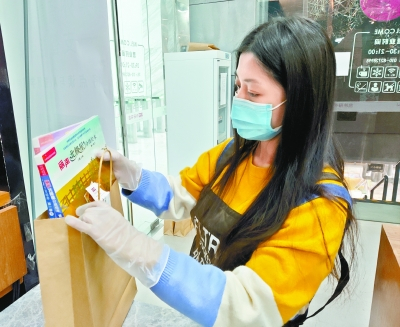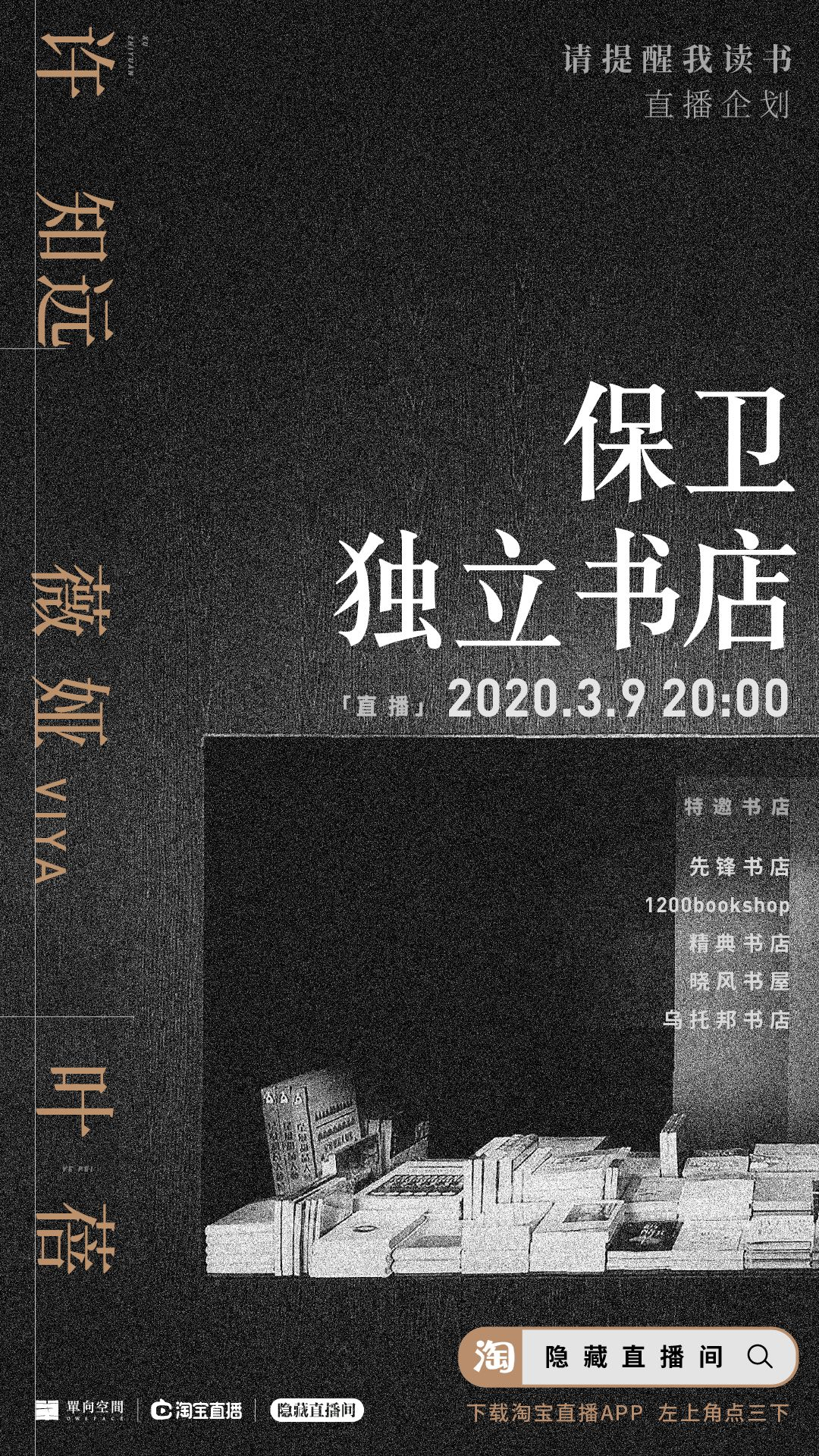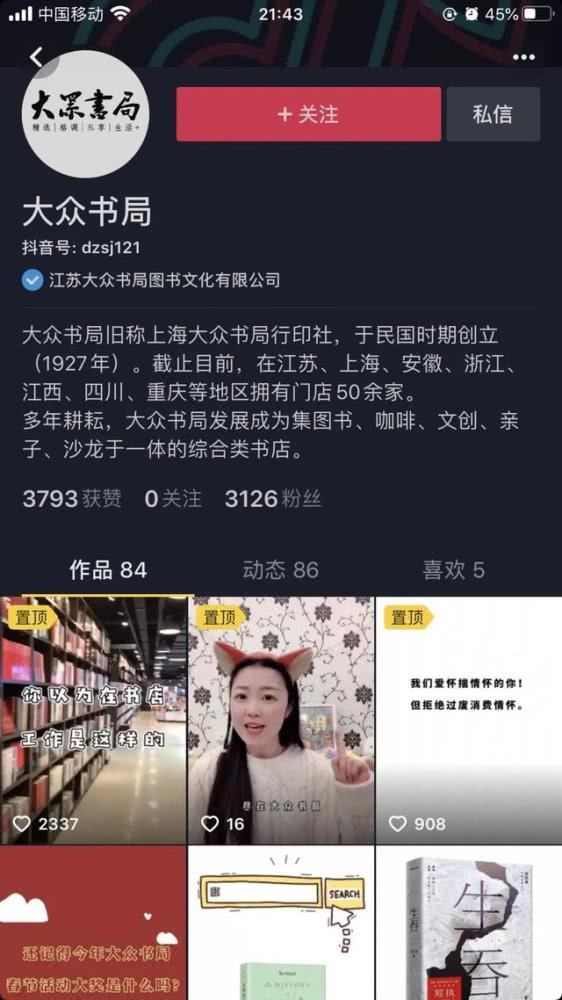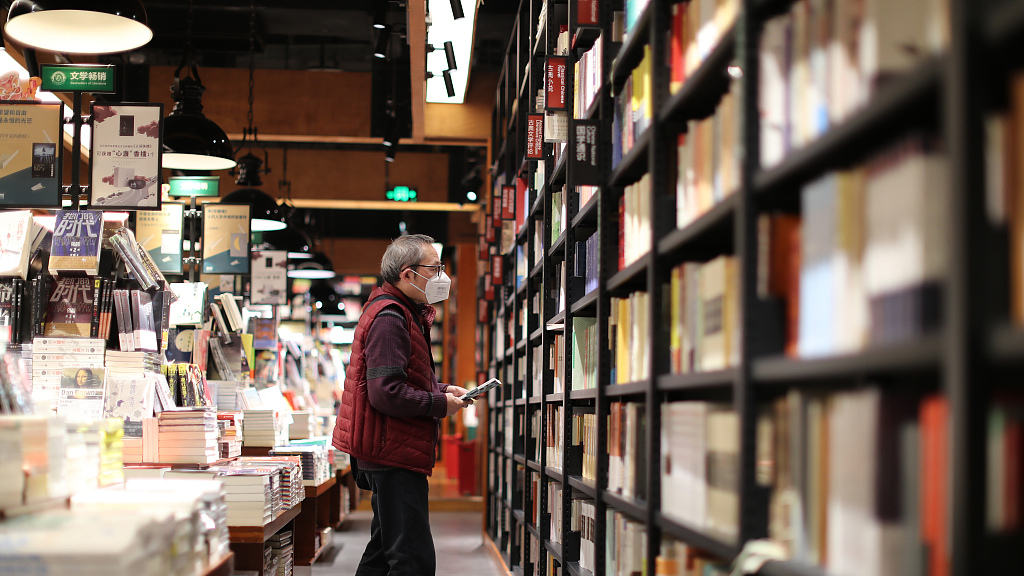Recent years have witnessed the steady development of brick-and-mortar bookstores in China after a period of struggle amid the growth of e-commerce at the start of the century, on the back of consistent support from local governments. The unexpected arrival of the COVID-19 epidemic, however, has delivered a further blow to the stressed-out industry.
With the logistics network brought to a near halt and citizens conducting homebound self-isolation, physical bookstores in China are resorting to versatile approaches to keep themselves away from extinction.
Starting from the first week of March, a total of 72 brick-and-mortar bookstores in Beijing started delivering books on Meituan, one of China's largest online food delivery platforms. The "take-out" service co-mingling with "intellectual food" means that customers can order their books like their dishes and get them as quickly as within half an hour.

A member of staff working at the Bookstore of Foreign Language Teaching and Research Press prepares a takeout package ordered on Meituan. /Xinhua
A member of staff working at the Bookstore of Foreign Language Teaching and Research Press prepares a takeout package ordered on Meituan. /Xinhua
The Bookstore of Foreign Language Teaching and Research Press, a famous campus bookstore with two branches in Beijing, said it had received more than 50 orders, over 30 instant orders and 20 reserved ones within a day at the weekend. China's largest book retail chain, Xinhua Bookstore, also joined in with 32 outlets signed up to the Meituan takeout platform. Delightfully, more than 100 orders have been received since the trial operation of the takeout service started on March 13.
But not all the fresh settlers on Meituan boast such luck. Some physical bookstores, especially ones that offer unique books to niche audiences, have not seen a single order placed yet.
Poetic Books, a poetry-themed bookstore in a Beijing alley, has reportedly delivered about 600 accumulated orders since the logistics network recovered on March 9 – all via their online stores on Taobao, JD and Youzan. "Since our bookstore mainly focuses on poetry and literature, we have a relatively stable consumer base who have been accustomed to placing orders on platforms they are familiar with," said Peng Mingbang, founder of Poetic Books.

The Yanjiyou Bookstore in Xi'an, capital of northwest China's Shaanxi Province. /VCG
The Yanjiyou Bookstore in Xi'an, capital of northwest China's Shaanxi Province. /VCG
Actually, this is not the first time the brick-and-mortar bookstores in China have rendered takeout services on food delivery platforms.
Since February 12, Yanjiyou Bookstore, an innovative and design-driven bookstore renowned for its refined offline experience usually with an art gallery and cafe instore, has been delivering books, beverages as well as cultural and creative products on another food-delivery app Ele.me.
To survive the crisis, bookshops are striving to be better self-publicists, dabbling with livestreaming and publishing short videos during the special period.
Shanghai's outlet of Zhongshuge Bookstore became the first to take the crack at live broadcasting on Taobao Live ever since the coronavirus outbreak. Though the first-time live shows teemed with scenes of bookstore staff circling around the empty shop and flipping through books for online viewers, the first try on February 4 attracted reportedly nearly 9,000 people in 4 hours, harvesting more than 10,000 interactive remarks and 27,000 likes.

A poster of a livestreaming campaign initiated by OWSpace, Taobao Live to preserve the independent bookstores. /Taobao Live
A poster of a livestreaming campaign initiated by OWSpace, Taobao Live to preserve the independent bookstores. /Taobao Live
Later, more bookshops followed suit. On March 9, livestreaming aimed at preserving independent bookstores in China was initiated by OWSpace and other five independent bookshops, supported by Taobao Live and one of the top Chinese influencers Viya.
During the live broadcast, a panel discussion was held, where issues like the plight and challenges that indie bookstores confront amid the epidemic and the significance of independent bookstores' existence were analyzed. Besides, the six indies also respectively prepared blind boxes, with each containing selected books, cultural and creative products for sale.
Some also joined the bandwagon to publish short video clips in a way to promote books on Douyin, the Chinese name for TikTok. JIC Bookstore, Popular Bookmall and Coder Bookstore are among the pioneers who have utilized the platform for book recommendations, store touring and livestream forecasts. It remains to be seen how the conversion rate to sales develops over time.

The official account of Popular Bookmall on douyin, the Chinese name for TikTok. /Screenshot via douyin
The official account of Popular Bookmall on douyin, the Chinese name for TikTok. /Screenshot via douyin
Meanwhile, many of the physical stores have striven hard to maintain their community online, especially via official accounts and groups on WeChat. Online lectures, WeChat book clubs and book recommendations … assorted measures have been adopted for customer retention.
For instance, a creative service named "book surprise" has been initiated by 1200 Bookshop, a 24-hour business in the southern city of Guangzhou. The service allows customers to pour out their feelings to the store's WeChat account, and in response, get a book handpicked by the store that could match their current mood, according to Sixth Tone, an online publication owned by the Shanghai United Media Group.
The good news is that the hard-hit bookselling industry is not standing alone. To better cope with the severe status quo, many local governments have issued preferential policies, including providing financial aid to physical bookshops.
By subsidizing rent and rewarding stores that stay open amid the coronavirus outbreak, China's capital took measures in advance to help the city's brick-and-mortar bookstores stay afloat. The first batch of funding has been put in place, with 161 bookstores ranging from chain stores like Page One and CITIC Bookstore to independent stores like Poetic Books making the list.

A reader browses in Sisyphe Bookstore in Chongqing on March 18. /VCG
A reader browses in Sisyphe Bookstore in Chongqing on March 18. /VCG
According to a survey conducted by researches at the Publicity Department of China, over 90 percent of bookselling businesses were closed due to the pandemic. More than 40 percent expect to see revenue fall by over 50 percent in the first half of the year, while more than three-quarters do not have the financial resources to survive more than three months, according to the survey.
(Cover image: an Inception-like Zhongshuge Bookstore in Chongqing featured with mirror maze. /VCG)